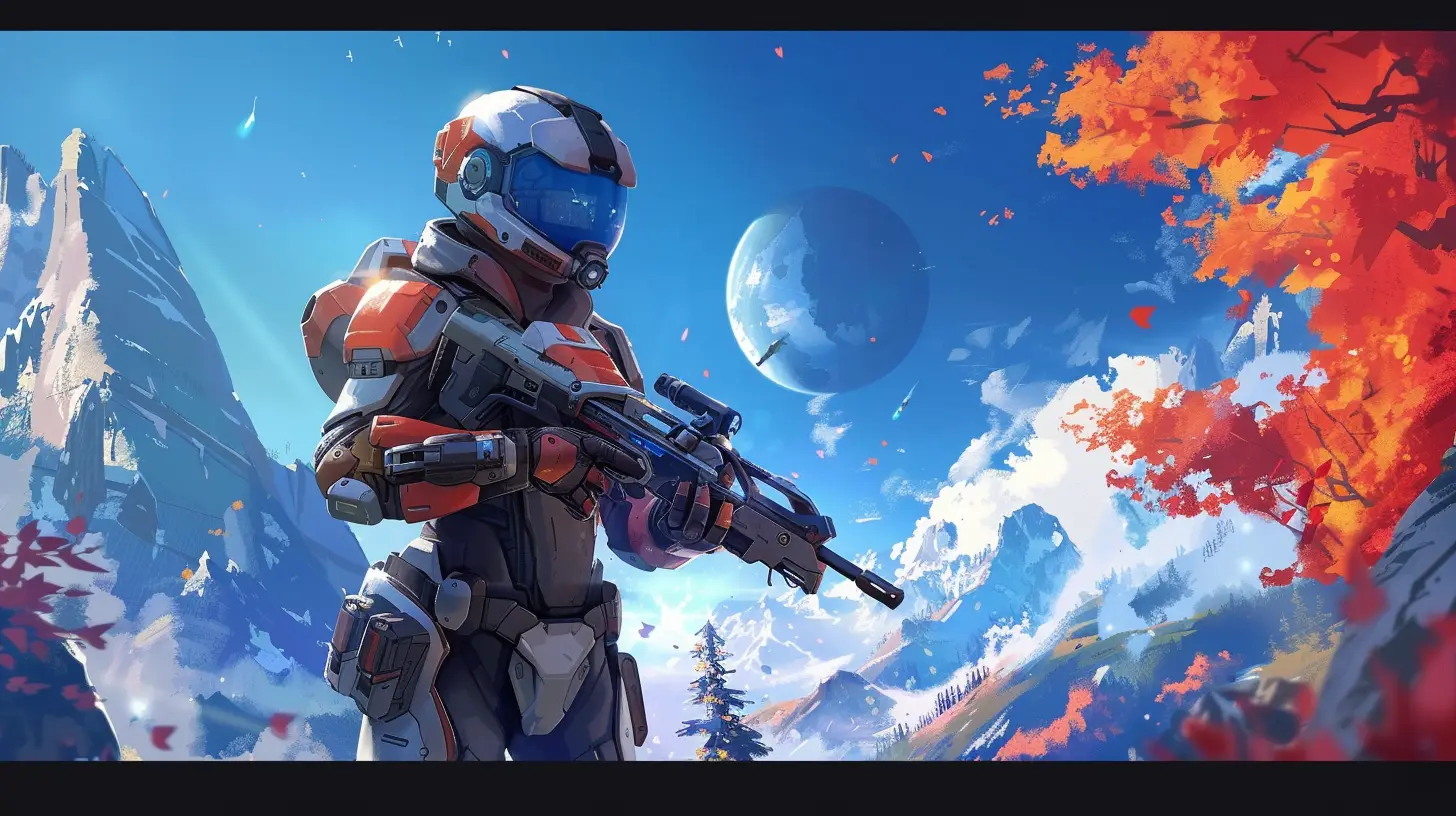6 April 2025
The gaming world has exploded, hasn’t it? Free-to-play (F2P) games are dominating the industry, pulling in millions of players and creating communities so massive they rival entire countries. But here's the kicker: they’re not actually “free.” Sure, you can download and start playing without spending a dime, but eventually, you’re going to be tempted by a shiny new skin, an exclusive weapon, or—our topic of the day—a paid season pass.
Now, there’s a lot of chatter online about whether free-to-play games should even offer paid season passes. Some players think it's a fair trade-off; others feel like it’s just squeezing money out of fans. So, let’s break it down and see if these season passes are worth the hype—or if they’re quietly ruining gaming experiences for all of us.

What Even Is a Season Pass?
Alright, let’s start with the basics. A season pass is essentially a time-limited progression system in a game. You play, complete in-game challenges, and unlock rewards as you go. Think of it like a treasure hunt, but instead of a chest full of gold, you’re getting cosmetic items, XP boosts, or exclusive content.Now, in most free-to-play games, season passes come in two flavors: a free track (for non-paying players) and a premium track (for those who open their wallets). Naturally, the premium track is where all the goodies are—rare skins, extra currency, unique animations, etc. You might even earn enough in-game currency through the pass to buy the next one without spending more real money. Sounds fair, right? Well, not everyone agrees.

The Case For Paid Season Passes
Let’s start with the pros. Paid season passes do have their merits, and it’s not all about corporate greed (shocker, I know). Here’s why they might actually make sense in the free-to-play ecosystem.1. Funding Free-to-Play Games
Developing a game isn’t cheap. Studios spend years (and sometimes millions of dollars) crafting a single title. But when a game is free-to-play, where does the money come from? Ads? Microtransactions? Yep—and season passes are just another piece of the puzzle.Think about it: the revenue from a paid season pass keeps the game alive. It funds server maintenance, new updates, bug fixes, and expansions. Without this income stream, a lot of F2P games would go belly-up. So, in a way, buying a season pass feels like supporting the developers who created a game you already enjoy. Fair trade, right?
2. Rewarding Engagement
Season passes aren’t just a cash grab—they also reward players who actually play the game. You’re not just tossing money at the screen and hoping for the best. If you invest time and effort, the pass ensures you get some serious bang for your buck.Think of it like a gym membership (but for gaming). If you show up regularly, you’ll get your money’s worth. But if you’re the kind of person who buys a pass and then forgets to log in… well, that’s on you.
3. Exclusive Content Feels Special
There’s something satisfying about unlocking an exclusive skin or weapon that screams, “I was here.” Paid season passes often include items that are limited-edition, meaning you won’t find them anywhere else once the season ends. For some players, this exclusivity is a big deal. Who doesn’t want to rock a custom outfit that tells other players, “Yeah, I crushed last season”?
The Case Against Paid Season Passes
Now, let’s flip the coin. While season passes can offer value, they aren’t without their flaws. In fact, some players argue that they create more problems than they solve.1. FOMO (Fear of Missing Out)
Season passes capitalize on FOMO like it’s their job. You know that sinking feeling when you log in on the last day of the season and realize you’re nowhere near finishing the pass you paid for? Yeah, that’s not fun.Developers intentionally design these passes to keep you hooked, constantly grinding for rewards before they vanish forever. In some ways, it feels less like a fun challenge and more like a ticking time bomb. And let’s be honest—who has the time to grind every single day?
2. Pressure to Spend
Here’s the thing: season passes don’t exist in a vacuum. They’re part of a larger ecosystem designed to nudge you toward spending money. The free track often feels bare-bones compared to the premium version, making non-paying players feel like second-class citizens.It’s not just about “supporting the developers” anymore—it’s about dangling rewards in front of you until you cave. It’s kind of like walking into a candy store as a kid: you can look, but if you want the good stuff, you’ve gotta pay up.
3. Burnout Is Real
Grinding for rewards in a season pass can start out fun, but it doesn’t take long for it to feel like a second job. Players often talk about “battle pass fatigue,” especially in games with short season cycles. Instead of playing for fun, you’re logging in because you have to, just to justify the money you spent. That’s not gaming—that’s a chore.
The Middle Ground: Can it Be Done?
So, where do we go from here? Should free-to-play games ditch paid season passes altogether? Probably not. But could they do a better job balancing the system? Absolutely.1. Lower Prices
One idea is to make season passes more affordable. Not everyone can drop $10-$20 every few months, especially if they’re playing multiple games. Lowering the cost could make passes accessible to more players, which might actually increase revenue in the long run.2. Make the Free Track Better
The free track shouldn’t feel like an afterthought. If developers include more meaningful rewards for non-paying players, it could make the game feel less like a pay-to-win cash grab. Plus, it might convince more players to stick around—and maybe even buy into the premium track later.3. Extend Season Durations
If burnout is a problem, why not give players more time to complete the pass? Extending the season duration would relieve some of the pressure, allowing players to pace themselves and actually enjoy the game.So, What’s the Verdict?
At the end of the day, whether free-to-play games should offer paid season passes comes down to balance. On one hand, these passes provide a way for developers to fund their games and offer players exclusive rewards. On the other, they can feel predatory and contribute to burnout if not handled properly.As gamers, we need to hold developers accountable while also recognizing the realities of game development. Season passes aren’t inherently bad—but they need to be fair, rewarding, and, most importantly, fun. After all, isn’t that what gaming is supposed to be about?




Diesel Young
Great article! It’s fascinating to explore the balance between free content and paid season passes in games. The discussion on player engagement and developer sustainability is so relevant in today’s gaming landscape. I’m excited to hear more perspectives on how these models can coexist harmoniously for everyone involved!
April 8, 2025 at 3:35 PM